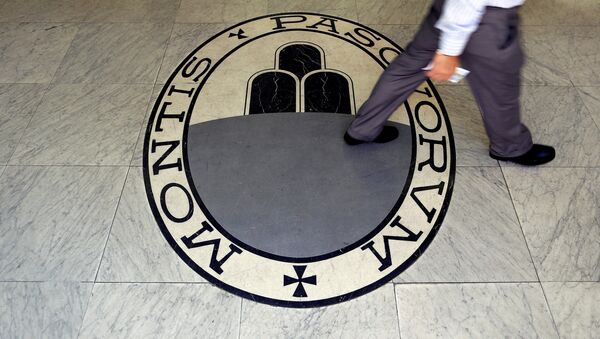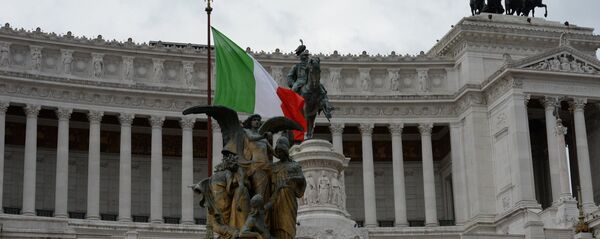Kristian Rouz – After the world’s oldest, and now Italy’s most disturbing, lender, Monte die Paschi di Siena, failed to raise 5 bln euros ($5.2 bln) for recapitalisation, the Italian government has no options but nationalising Italy’s third-largest bank, or allowing it to collapse.
Earlier this week, the Italian cabinet approved a 20 bln euro bailout for the nation’s banks at the cost of the expansion of national debt, but these funds would not be sufficient to close all gaps on balance sheets of several troubled Italian lenders.
The government might enact a nationalisation decree later on Thursday, providing coverage for all funds that Monte Paschi is missing from its balance sheets so that the bank could stay afloat. After the bank announced earlier this month it was seeking investor capital for recapitalisation purposes via debt-for-equity swaps, no investor showed any interest.
Second, the Monte-proposed interest rate was too low given the high risks associated with the deal.
Subsequently, a nationalisation if the bank could become the first in a series of subsequent governmental bank acquisitions, resulting in a massive increase of the government’s presence in the Italian financial sector. As the tumultuous Italian finance gets increasingly politicised, the populist drive in Italian politics might gain significant ground in calls for Italy’s separation from the EU.
“Nationalisation after five years of restructuring, two state bailouts and 8 bln euros of wasted private funds is at the very least a missed opportunity, if not an outright failure of both the private and public sector,” Fabrizio Bernardi of Fidentiis Equities said.
For now, however, the looming nationalisation’s effects to the future of the EU have not alerted market participants. Italian equities and the common currency gained a boost in Thursday’s trading on the nationalisation speculation, whilst oil and industrial metals dipped.
“This situation has dragged on for years without a clear solution. Now a solution is in sight,” Lorenzo Codogno of LC Macro Advisors said. “My perception is that the government backstop will be welcomed by financial markets and it will be a plus for the (Italian) economy as well.”
Monte Paschi has also been seeking to sell some 28 bln euros worth of NPLs as part of their recapitalisation and cleaning the balance sheet effort, yet, to no avail thus far. The looming nationalisation would be the biggest governmental acquisition of a privately-held asset in Italy since the 1930s.
As for the Itexit fears, a snap election, if it is called, would likely bring about the populist Five Star Movement to form the new cabinet, and this will likely pave the way to Italy’s separation from the EU. The European authorities thus have no options other than approving the upcoming wave of banking sector nationalisations in Italy, or bracing for the loss of another member state.
“If the Europeans for some reason decide to oppose the way in which Italy decides to do its bank bailout, if it needs to do it, then you end up with a confidence motion against the government, and then essentially you get fresh elections,” Michael Metcalfe of State Street Global Markets said in a Bloomberg TV interview.
Nationalisations in the Italian banking sector would inevitably make the nation’s economy more dirigiste and akin to the state-capitalist model, with a decreased competition in domestic finance and lending. Besides, the 20 bln-euro increase in national debt would push the yield up, putting upward pressure on natural interest rates, rendering credit less available to Italian borrowers.



